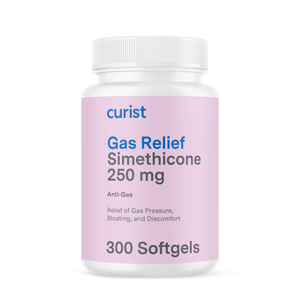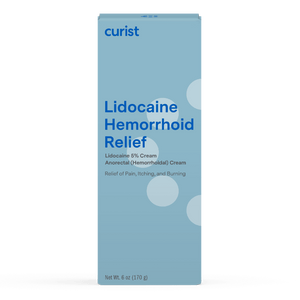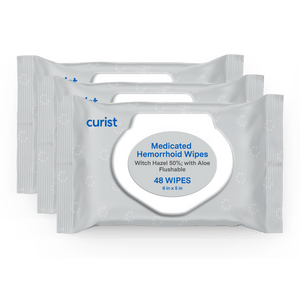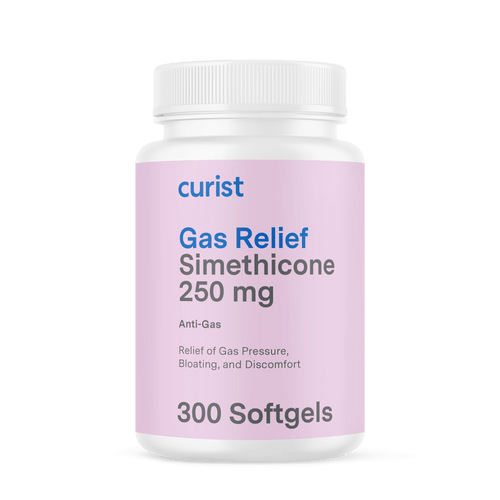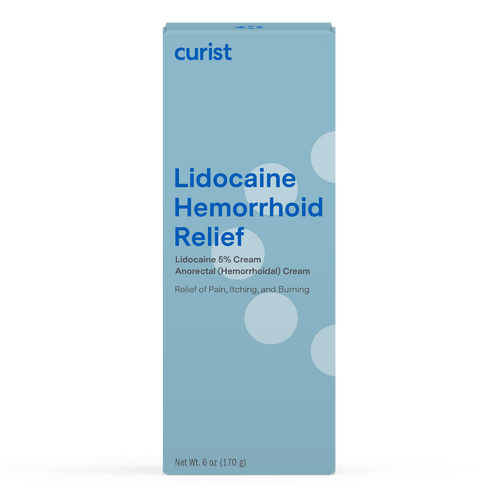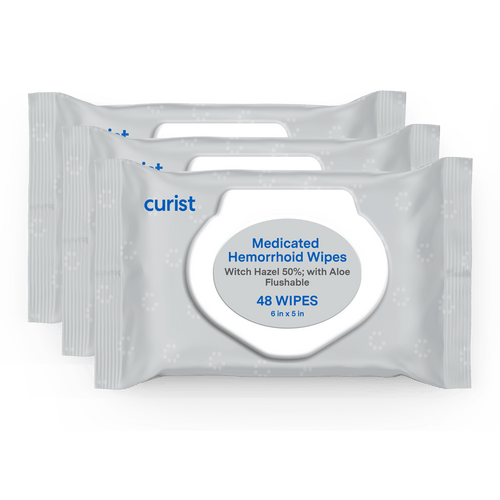Curist delivers over-the-counter medicines to your door at a fraction of the price of traditional brands. We hope everyone stays safe and healthy during this time.
To treat symptoms of constipation, you have several over-the-counter (OTC) options to choose from. There are medications for constipation that provide fast acting relief from symptoms and should only be used for short-term treatment of 7 days or less. In this article, we will be looking at two different classes of OTC medications indicated for the treatment of constipation and discuss their similarities and differences.
Bulk Forming Laxatives: What are Metamucil and Citrucel? What’s The Difference Between Metamucil vs Citrucel?
Metamucil® (psyllium) and Citrucel® (methylcellulose) are fiber supplements that are part of a class of medications called bulk forming laxatives. Metamucil and Citrucel can both aid in digestion. Fiber products may ferment in your digestive system, which may cause excessive gas. Metamucil is more likely to cause gas because it is fermentable, while Citrucel is non-fermentable. They both work by retaining water and making a gel inside your digestive system to trap and remove the waste. Through stimulating your bowels to help remove this built up waste, bulk forming laxatives can provide relief from constipation. These medications typically work within 12 to 24 hours and are usually taken the night before for adequate relief in the morning. This is not ideal for patients who want immediate relief.
Osmotic Laxative: What is Miralax (Polyethylene glycol)?
Miralax (polyethylene glycol) is an osmotic laxative. It works with the water in your body to help your digestive system. Miralax attracts water in the colon, leading to stool retaining more water. This increased stool volume makes it easier to pass stool. Miralax typically works within 24 to 96 hours to help relieve constipation.
Stool Softener: What is Colace (Docusate Sodium)? Is Colace a Laxative or Stool Softener?
Colace (docusate sodium) is an emollient, also known as a stool softener. Colace provides relief to constipation by softening the stool so it is easier to pass. Colace is not a laxative because it does not directly affect bowel movements or how the digestive system moves stool. Instead, Colace allows water and fats to enter the stool, which softens and makes passing it more comfortable.
Are Metamucil, Citrucel, Miralax, and Colace the Same Thing?
No, Metamucil, Citrucel, Miralax, and Colace are not the same thing. While they all can help treat constipation, Metamucil, Citrucel, Miralax, and Colace all work differently and therefore have different uses. Metamucil and Citrucel and Miralax belong to two different drug classes. Metamucil and Citrucel are bulk forming laxatives and fiber supplements versus Miralax which is an osmotic laxative. Even though Metamucil, Citrucel, and Miralax are all laxatives, they work in different ways in your body. Both classes are used to provide relief from constipation. Metamucil and Citrucel are recommended as the treatment of choice in most cases of constipation because their effects are very similar to how the digestive system normally works. After constipation resolves, Metamucil and Citrucel can still be used as a fiber supplement to promote good digestive health. Compared to Metamucil and Citrucel, Miralax is useful for the short-term management of constipation, but it is not recommended to be used as a dietary supplement.
Compared versus Miralax, Metamucil and Citrucel which are all laxatives, Colace is not a laxative at all. It is an emollient or stool softener that allows water and fats to get into the stool, helping to soften and make passing it more comfortable. Colace does not work on how the digestive system moves stool. Colace should only be used for short term relief of constipation. In addition to constipation, it is to prevent painful stool passing in patients with anorectal disorders or in those who should avoid straining.
What is the Difference: Metamucil vs Citrucel vs Miralax vs Colace?
Metamucil, Citrucel, Miralax, and Colace are all considered effective medications for the treatment of constipation, however, they differ in how they work and how they are used.
Metamucil vs Citrucel vs Miralax vs Colace: Constipation
As bulk forming laxatives and fiber supplements, Metamucil and Citrucel powders should be taken with 1 cup of water. Metamucil can be taken 2.5 to 30 g per day in divided doses, and Citrucel can be up to three times a day. Both Metamucil and Citrucel can be taken with or without food. However, if they cause an upset stomach, then it is recommended to take Metamucil and Citrucel with food. Try to space other drugs from laxatives by two hours because it could prevent many drugs from getting absorbed into the body. Metamucil is more likely to cause gas because it is a fermentable fiber. Metamucil and Citrucel should not be used for more than 1 week as treatment for constipation.
As an osmotic laxative, Miralax powder should be dosed once a day and dissolved in half to one cup of water. Miralax may take a few days to see the full effect. Miralax should not be used for more than 1 week for constipation. Individuals with kidney problems or irritable bowel disease should not start Miralax without speaking with their physician.
As a stool softener, Colace can be taken once daily or divided doses throughout the day with 1 glass of water. It can be taken with or without food. Colace can increase the absorption of other medications like digoxin and warfarin. Colace should not be used for more than 1 week for relief of constipation symptoms such as difficulty passing dry, hard stool.
Metamucil vs Citrucel vs Miralax vs Colace: Side Effects
Metamucil, Citrucel, Miralax, and Colace are all considered well tolerated medications. Most people do not experience side effects from taking them, but it is possible to experience stomach or abdominal cramps, bloating, and/or gas. If they occur, the side effects are similar among Metamucil, Citrucel, Miralax, and Colace.
Which Works Better for Constipation: Metamucil, Citrucel, Miralax, or Colace?
Metamucil and Citrucel are recommended as the best treatment in most cases of constipation because their mechanisms of action are very similar to how the digestive system normally works. After constipation resolves, Metamucil and Citrucel can still be used as fiber supplements to promote good digestive health. Agents should never be used in combination. It is recommended to use only one agent for short term treatment.
Can I Take Metamucil, Citrucel, Miralax, or Colace Together?
No, you should not take Metamucil, Citrucel, Miralax and Colace together. It is not recommended to take more than one laxative or stool softener for the treatment of constipation at one time because it may increase the likelihood or severity of side effects, such as diarrhea and vomiting, fluid and electrolyte losses. Do not use more than one product at a time to treat constipation, unless it is recommended by your physician to do so otherwise. Whether taking Metamucil, Citrucel, Miralax, or Colace, it should be used to treat constipation for 7 days or less. Contact your health care provider if constipation continues over several weeks or months, or is complicated by other pre-existing medical conditions.
Where Can I Buy Metamucil, Citrucel, Miralax, and Colace?
Metamucil, Citrucel, Miralax, and Colace are available in local pharmacies as well as stores online, and do not need a doctor’s prescription.
At Curist, we develop FDA-approved equivalents to big brands in order to provide the same medicine relief but at half the price of the brands. Curist products are sold online and shipped directly to your door.




